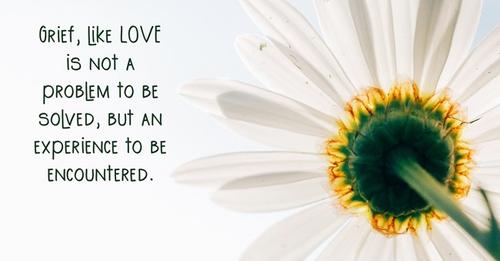Some context on this post: I’m doing a study on Grief – I’m interested in psychology and the human experience. Considering each one of us will encounter this at some point, it’s remarkable this hasn’t been forefront more often.
Our culture seems uneducated and ill-equipped to navigate through this … either at a loss of how to support someone or process through the journey oneself.
The majority of resources available for the bereaved are AFTER the numb, shock awe and raw portion of the “experience”… and even at that is spotty and sometimes even inappropriate. (aka resources are for the “rebuilding” phase).
There are different kinds of grief other than the obvious, such as caretaker grief, or “the long goodbye” for someone with dementia for example… known as “ambiguous loss”.
But over the past winter-spring having lost 8 family or friends in 5 months, was a lot to bear. A bear of a bear… if we’re using wordplay… also with a dad with dementia and two in-law parents one in palliative and the other on their way there.
(One of the few places grammatically where one can say… they’re on their way there)
Study for me helps the processing. Grief is not a problem to be solved (thus offering ‘solutions’ can be both harmful and irrelevant) but more of a mindfulness…
…much like “the other side of the coin” of love, it’s something to be experienced, and like love it can fade in time, but generally a remnant sadness remains with full love intact.
Without love, we do not grieve. It’s because of love… the risk of love, if you will, that we grieve.
This provides a powerful connection, a solidarity, if you will, that anyone who has experienced similar has a sense of “knowing”.
Grieving does not mean one is bad, wrong or broken. Mourning is the most natural thing in the world, and it would be more unusual if someone did not grieve. The sigma around it is astounding.
Although people usually want to “say something” this often leads to more pain, even the most “wellmeaning” can end up as well-MEAN-ing… The power of “quiet” presence, can be and is generally the most powerful support.
I am simply observing, sitting with, being curious and processing… just like I do with everything else in my life… including love, relationships, work and nature… I am exactly where I need to be, which is in the present moment.
I have read a fair number of books on the subject most of them I have loathed or wanted to burn quite frankly…
A couple I found useful: (these are NOT affiliate links – I do not get paid for these)
Grief specifically:
It’s OK That You’re Not OK: Meeting Grief and Loss in a Culture That Doesn’t Understand
Megan Devine the author is both a psychotherapist and a widow after her husband died unexpectedly at 39. She understands from both sides of the therapeutic coin and articulates beautifully without “getting dragged into someone’s story” the process of grief, what it is, isn’t, what others expect it to be and shouldn’t, the well meaning yet painful things people say but shouldn’t… and pretty much the opposite advice that every other book on grief will provide. She’s very forthright, and her honesty is refreshing.
Just on being open and curious with life – great for any and all emotions – especially in relationships:
ACT with Love: Stop Struggling, Reconcile Differences, and Strengthen Your Relationship with Acceptance and Commitment Therapy
Popular myths about love set us up for a struggle with real life. ACT with Love will teach you how to:•Let go of conflict, open up, and live fully in the present.
Although there are multiple books about ACT therapy – they are draggy and boggy. Dr. Russ Harris has a great way of being down to earth, while providing highly absorb-able concepts, yet still respectful of the intellect of the reader.
#grief #loss

